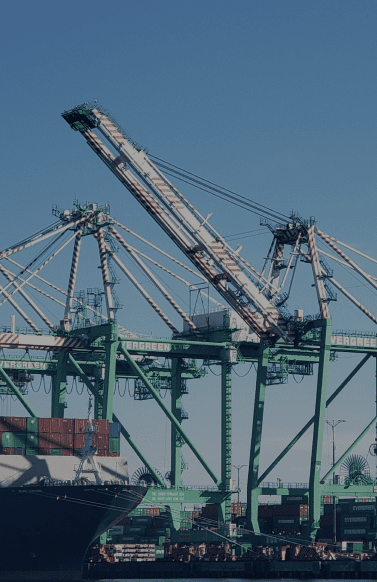Longshore Harbor Workers' Compensation Act
The Longshore Harbor Workers' Compensation Act is a law under the federal government. This act offers compensation for vocational rehabilitation and medical care services to workers who have suffered disability caused by work-related disease or in the adjoining areas typically used for building, repairing, unloading, or loading a vessel.
LHWCA also offers survivor compensation to the dependents of the workers in case the injuries result in the employee's death. The private insurance company pays these compensations on behalf of the employer or the self-insured employer.
Having an experienced workers’ compensation lawyer is vital to ensure you receive the right compensation for your injuries and suffering. The Law Office of Andrea R. Herman has extensive experience representing employees in Los Angeles, CA, and ensuring they get the right benefits.
Exclusions and Qualifications of LHWCA
Maritime employees who suffer injuries in California and other states have to meet the situs and status test to be eligible for the benefits under LHWCA. The employees who are not eligible for LHWCA may still get compensation under the state workers’ compensation. The LHWCA benefits are generally more generous as compared to the benefits provided under state workers’ compensation.
However, LHWCA benefits are only eligible for employees who meet the status and situs tests, which are as follows:
The Status Test
This test is related to the type of work the employee performs for their employer. To be eligible for LHWCA benefits, the employee should be doing at least some type of maritime-related work, meaning the work should be related to marine or water transport.
Multiple classes of workers are eligible for LHWCA benefits, including longshoremen, workers assisting in loading and unloading shipbreakers, shipbuilders, ship repairmen, and vessels, truck drivers taking shipping containers, and mechanics repairing the trucks.
However, all employees working for a maritime employer don’t meet the requirements of the status test. The main criteria to be eligible for LHWCA benefits is that the employee must have some maritime duties, meaning employees performing desk duties are not qualified even if they are working for a maritime employee.
Other workers that are not eligible under LHWCA are as follows:
- aquaculture workers(i.e., fish farming),
- crew members and captains of vessels
- employees who aren’t engaged in the expansion, replacement, or construction of the marina (excluding those conducting routine maintenance)
- maintenance specialists or mechanics for recreational vessels; and
- shipbuilders employed for building recreational vessels that are smaller than sixty-five feet
The Situs Test
The other requirement for LHWCA eligibility is the situs test, which is the location-related test. This means the location where the workers usually work for the maritime employer. The employees who work adjacent to, near, or on navigable waters are eligible for LHWCA benefits.
This means employees who are working on the vessel or ship as long as they aren't crew members or employees working close to the boat or ship. The workers working at least part-time on terminals, dry docks, wharves, piers, or areas utilized by employers in dismantling, repairing, unloading, loading, or building a vessel are eligible under the situs test.
The other important question is how far can the maritime worker get away from the water and be adjacent to it to be eligible for the benefits? Since the skipping and shipyard terminals are massive, and the front entrance of most of them could be more than half a mile away from water. Other vessels could even extend to adjoining neighborhoods.
Therefore, the answer is if the maritime worker works a mile or so away from the border of the terminal or shipyard or the water, they might not be eligible for the LHWCA benefits since they would not be considered working adjacent to, near or on the navigable water.
LHWCA Benefits
LHWCA offers a range of compensation and benefits to the injured employee, which may include:
- Permanent partial disability
- Permanent total disability
- Temporary partial disability
- Temporary total disability
Under this act, the injured worker can be compensated for all the necessary and reasonable medical expenses and get the mileage or necessary transportation expenses to attain continued care. If the attending physician declares the injured employee as fit to return to work, then the agency will offer vocational rehabilitation for the worker.
Difference between LHWCA and State Workers' Compensation Benefits
Both acts provide the necessary compensation to injured employees, but there are certain differences between the benefits of LHWCA and state workers’ compensation. The LHWCA benefits are more generous as compared to the state workers’ compensation.
There are many differences between the LHWCA and CA State workers' compensation law that will be addressed in any case with Law Office of Andrea R. Herman.
Consult an Experienced LHWCA Lawyer in Los Angeles, CA
Getting injured due to your work environment or suffering from permanent or temporary disability can be devastating for any worker. Under the LHWCA, you might be entitled to compensation to cover your medical bills and other expenses. The Law Office of Andrea R. Herman can help ensure you get the best LHWCA benefits in Los Angeles, CA, so you can get the best health care and lead a better life. Get in touch with us, and our team will discuss the best course of action based on your case in California. Our expert LHWCA lawyers will be with you every step of the way and protect your rights.






